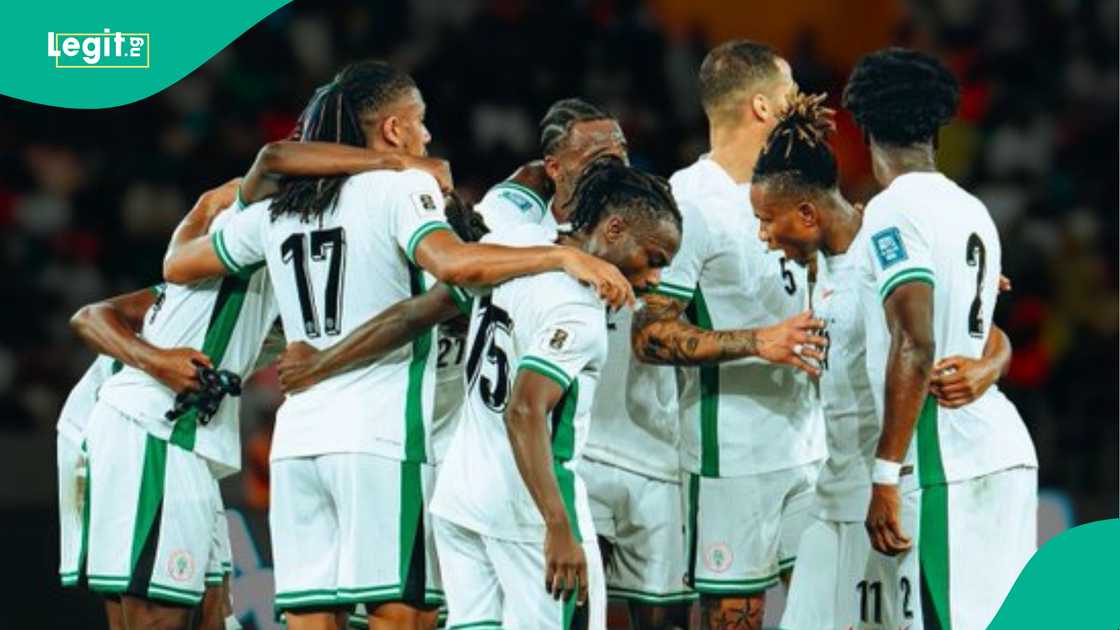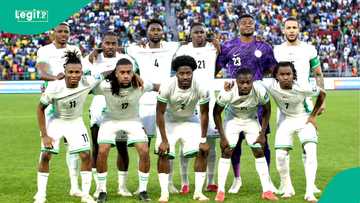2026 WCQ: Steps Nigeria Could Take if FIFA Fails To Deduct 3 Points From South Africa
- Nigeria risks missing back-to-back World Cups if FIFA fails to deduct three points from Group C rivals South Africa
- FIFA has a history of punishing teams, including Nigeria, for fielding ineligible players in crucial games
- Nigeria can take legal action against FIFA at CAS if the rules are not applied consistently
The controversy surrounding South Africa’s fielding of an ineligible player in their 2-0 victory over Lesotho in the 2026 FIFA World Cup qualifiers continues to stir debate.
Theboho Mokoena, who had accumulated two yellow cards in previous matches, was ineligible to play but featured for 81 minutes in the match.

Source: Getty Images
Despite this clear rule violation, FIFA has yet to announce any sanctions, leaving Nigeria’s qualification hopes uncertain.
Lesotho, the affected team, has opted not to file an official protest, citing the 48-hour deadline for such appeals. However, they remain hopeful that FIFA will uphold the integrity of the competition by enforcing the established rules.
For Nigeria, the stakes are incredibly high. The Super Eagles have struggled in the qualifiers, winning just one of their six games so far.
Currently sitting in fourth place in Group C with seven points—six points behind group leaders South Africa, according to FIFA.com, Nigeria’s path to the World Cup would be significantly improved if FIFA deducts three points from Bafana Bafana.
Historical precedents for FIFA sanctions
FIFA has previously punished nations for similar infractions, setting a strong precedent for action against South Africa.
In the 2018 World Cup qualifiers, Nigeria themselves were docked three points for fielding an ineligible player, Shehu Abdullahi, in a 1-1 draw against Algeria, despite Algeria not filing a protest, BBC reports.
Similarly, in 2013, Togo was penalised for using an ineligible player in a 2-0 win over Cameroon.
Other cases include Ethiopia (2014 World Cup Qualifiers), as they had a 3-0 win against Botswana overturned for fielding Minyahil Teshome Beyene, who was suspended.
Cape Verde during the 2014 World Cup Qualifiers were disqualified for using Fernando Varela, who was suspended in a previous match.
Equatorial Guinea also in the 2022 World Cup Qualifiers faced similar punishment as FIFA reversed two wins due to naturalisation issues with striker Emiliano Nsue.

Source: Twitter
Given these precedents, Nigeria has a legitimate case to demand similar punishment for South Africa.
Possible steps Nigeria can take against FIFA
If FIFA fails to apply the same disciplinary measures to South Africa, Nigeria can explore the following options:
1. File an official complaint to FIFA
The Nigeria Football Federation (NFF) can formally demand an investigation and ensure that FIFA applies its regulations consistently.
2. Seek legal redress at the Court of Arbitration for Sport (CAS)
If FIFA refuses to act, Nigeria can escalate the matter to CAS, arguing that their own past punishment under the same rules should set a precedent.
3. Lobby CAF and other football bodies
Nigeria can rally support from other African nations and football stakeholders to pressure FIFA into enforcing fair play.
With World Cup qualification at stake, Nigeria must act swiftly to ensure justice is served.
Super Eagles move up in FIFA rankings
Earlier, Legit.ng reported that the Super Eagles moved up on the latest FIFA ranking despite a mixed result in the 2026 FIFA World Cup qualifiers during the March international break.
Eric Chelle managed his first two games in charge of the Super Eagles, having taken charge of the team in January when he was unveiled as the new permanent manager.
PAY ATTENTION: Сheck out news that is picked exactly for YOU ➡️ find the “Recommended for you” block on the home page and enjoy!
Source: Legit.ng





